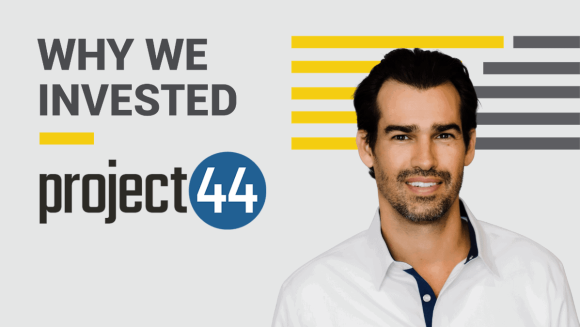It has never been easier to open an online storefront. And, consequently, eCommerce competition has never been fiercer.
Thanks to eCommerce platforms like Shopify, Amazon, and WooCommerce, independent merchants are quickly armed with the “business-in-a-box” tools needed to easily launch brands online. As a result, eCommerce is booming. The Shopify platform alone has 1.75 million merchants.
While the onramp to eCommerce has been massively simplified, merchants are still facing major challenges to reach scale. And scaling stage support from these platforms is limited. Each brand has to manage complex workflows: customer acquisition, customer engagement, merchandising, product information and analytics, inventory management, order fulfillment, and more. There are point solutions attempting to help these brands in this scale period, but these tools operate in silos, are largely manual, and put pressure on already thin margins, which leaves untapped opportunity (and money) on the table for emerging merchants.
Dianthus, an AI-first eCommerce brand builder and aggregator platform, aims to solve these inefficiencies and help brands improve their growth and performance through automation and data. We are delighted to share that we have co-led their $11.5M Seed round, alongside PJC and angel investor Jason Calacanis.
Accelerating D2C eCommerce Growth With AI
The Dianthus mission is to help Direct-to-Consumer (D2C) eCommerce brands accelerate their growth by applying AI and Machine Learning models to every function of their business.
However, instead of selling software to these brands, Dianthus acquires D2C brands with significant growth potential, providing a compelling exit strategy and the technology, marketing, and operational resources required to scale to the next level. Dianthus leverages first-party data within its proprietary AI engine to drive consumer engagement, brand development, analytics, and eventually workflow automation.
The Dianthus approach allows brands to accelerate two big opportunities in eCommerce that are still in the early innings – personalization and workflow automation – which require unique data sets and machine learning to fully capitalize on this opportunity.
The software-first approach empowers brands with persona development across customer bases, predictive analytics, and personalized generative content that would not normally be accessible. Currently, Dianthus is focused on growing its portfolio of D2C consumer companies, focusing on pet, outdoor, home and beauty products to start.
A Colossal and Growing eCommerce Market Opportunity
It’s no secret that the eCommerce market is massive and expected to grow. In 2021, retail eCommerce sales worldwide amounted to $4.9 trillion, and they’re projected to grow to $5.4 trillion in 2022. Independent sellers on marketplaces are expected to be an important source of that growth.
With the influx of independent sellers in this landscape, we’ve also seen the rise of the “aggregator” or “roll up” model, which companies like Boston-based Thrasio and Perch have pioneered in the Amazon marketplace. These companies focus on driving operational efficiencies for Amazon marketplace merchants, and they’ve attracted significant venture capital.
While 2021 was a flagship year for Amazon aggregators, we’re more excited by the opportunity in the Shopify ecosystem and other D2C landscapes (like WooCommerce), because the scope for operational efficiencies and the depth of customer data are much greater. Enter the Dianthus opportunity.

By targeting D2C brands in the Shopify ecosystem, Dianthus will be able to harness unique data sets that feed into their proprietary models, creating cross-pollination opportunities across customer audiences, in a way that cannot be done in the Amazon ecosystem.
Additionally, many of the aggregator models today rely on “brute operational force” to improve margins, which will likely hit a plateau point, versus truly leveraging technology and the power of AI/ML to drive operational gains. The AI-first model, when executed well, unlocks much larger and longer-term efficiency, revenue growth, and margin opportunities.
Founder Market Fit
This industry requires a blend of expertise in SMB business building, cutting-edge AI/ML expertise, and executive leadership, which is the exact unique combination found in the Dianthus team.
We are believers in the power of community at Underscore; it is our founding principle as a firm and why we exist. This is why it gives us particular joy when we have the opportunity to invest in members of our Core Community as they tackle the endeavors each is uniquely qualified to take on. When we heard Chris Litster and Rob May were teaming up to create Dianthus, we knew we had to get involved.
Chris Litster, CEO of Dianthus, is an experienced operator with a proven track record in critical areas for the Dianthus business – serving the SMB segment and driving revenue efficiencies with scale. Most recently, Chris led Buildium, a property management software, which he scaled and successfully sold to RealPage for $580M. Previously, he served as CRO and SVP of Sales and Marketing at Constant Contact, a marketing automation platform for SMB businesses, which was ultimately acquired for >$1B. Chris has been a part of Underscore’s own history, as our first EIR back in 2016, and as a trusted expert in our Core Community. He’s recognized in the Boston community for his people leadership, business acumen, and ability to build and manage scale.
Rob May, Founder and CTO of Dianthus, is a repeat founder with deep AI/ML expertise. He first co-founded Backupify (which was acquired by Datto), and then Talla, an AI-powered automation for service and support teams. He is an experienced technologist, operator, and angel investor in AI technology. Rob’s superpower as a founder and CTO is bringing visionary thinking and deep domain expertise to the product. Rob can create real leverage with AI/ML across the eCommerce stack and operations, which will be the differentiator for Dianthus. He is also a longtime member of Underscore’s Core Community, serving as a portfolio company Core Partner, as well as an AI expert in the broader Boston community.
Chris and Rob together have strong founder-market fit for this big opportunity.
What’s on the Horizon for Dianthus?
The company officially launched mid 2021, and the team is already off to the races. They’ve made their first brand acquisition, a company called Cuddle Clones, and are integrating and optimizing the business, beginning with generative marketing.
This Seed funding, along with secured debt, will allow the team to work alongside more D2C eCommerce entrepreneurs in the coming year, while continuing to vertically integrate the brands and offerings. They are actively building out the team across the business, starting with merchandising and M&A teams. They’re also looking for engineers, AI and machine-learning specialists to keep developing its software. We welcome you to check out their open roles!







